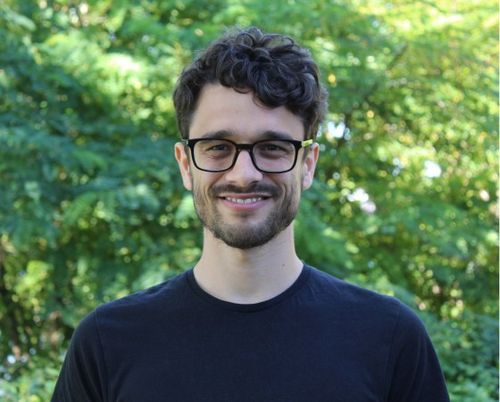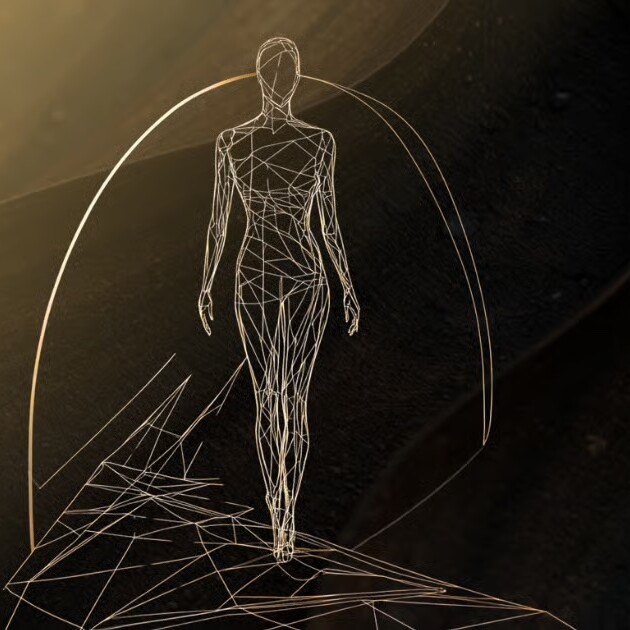All our current global challenges can basically be traced back to one underlying paradigm or myth: That we are separate from others and the world.
When we try to address challenges such as the climate crisis or social injustice, we need a new underlying paradigm to guide our actions – and not the paradigm that caused the challenges in the first place. Good news: That new paradigm or understanding of the world is already there. And it’s actually not that new.
Science speaks about the networked character of the world. Forests are collaborative ecosystems with underground networks exchanging resources across species, and a holistic understanding of health emphasises the importance of supportive social relationships.
Many wisdom traditions from across the globe have lived with that understanding for millenia. Call it interbeing, mutual arising, Ubuntu (“I am because we are”), Pachamama or Dao. A way forward therefore is to address the most fundamental and pressing challenges of our time with the science and wisdom we already have.
Yet we know that it’s not that simple. We can’t just “switch paradigms” like we switch TV channels, mainly because the old assumptions are deeply embedded in both our perception & thinking, social structures, language and the models & tools we use.
Measurement and impact evaluation are examples of such models and tools. At times it feels that we are obsessed with numbers, running after KPIs, impact goals and other metrics.
The guiding question for this article therefore is: What does the process of measurement and evaluation look like when it’s deeply embedded in a regenerative paradigm, highlighting the interconnectedness of everything?
A regenerative approach
On a scale from 0 to 10, how alive do you feel right now? What would you need to climb up the scale by one point?
Maybe it’s rest, letting go of worries, movement or physical exercise, a conversation with a good friend, or thinking about loved ones. I’ve been curious about observing and understanding how it’s possible to shift into states of deeper connection or increased energy, both individually and as a group.
It’s not that new energy suddenly appears out of nowhere. The potential was always there. It’s much more that we, our bodies, minds or ideas are not separate from our environment. We can choose how we relate to and align with what’s happening within and around us. A regenerative approach, therefore, asks us to enter a “conscious participation and co-creation” with life (Daniel Christian Wahl).
It’s basically asking the question: How can I (or we) serve the vitality and integrity of the whole (the team, organisation, sector or field, etc.), while seeing myself (our ourselves) as a part of that?
Down below I have listed a non-exhaustive list with further resources to dive deeper into the topic of regeneration.
Regenerative approaches have found their way into design, agriculture, medicine, leadership and business at large (among others). Yet so far there is no regenerative approach to measurement.
Reconceiving measurement
The history of measurement is closely linked to the history of control. The objects of measurement, in that context, are seen as external to oneself. And the reason for wanting to understand them is to make their behaviour, and our behaviour in relation to them, more predictable. In short: Measurement is used to gain power over the object of study.
The results are boxes we put people, nations and nature into, and KPIs and metrics we run after.
A regenerative approach to measurement makes a radical break from that history and its underlying assumptions. Instead it asks questions such as:
How can we use evaluation to decentralise power structures in our organisation?
What are the relevant indicators to measure the system’s aliveness and what’s providing energy for it?
What blocks are in the way of the system activating its full potential?
This approach is still about metrics and indicators, however it views measurement as creative power, as described by the root word, the Sanskrit term “maya”. It’s about unlocking the creativity, care and courage within ourselves and others – with the ambition to create the more beautiful world our hearts know is possible.
I believe that reconceiving why, how and what we measure can have tremendous leverage. Instead of pressuring ourselves to achieve external goals and meeting reporting deadlines, we could see the process of measurement as an ally on our path to learn, grow and deepen relationships.
How exactly? Well, that’s something we’ve been thinking about and are just in the beginning of engaging with.

Jannik Kaiser is co-founder of Unity Effect, where he is leading the area of Systemic Impact. His desire to co-create systemic social change led him down the rabbit holes of complexity science, human sense-making (e.g. phenomenology), asking big questions (just ask “why” often enough…) and personal healing. Having worked in the NGO sector, academia and now social entrepreneurship
originally published at Unity Effect

Network Weaver is dedicated to offering free content to all – in support of equity, justice and transformation for all.
We appreciate your support!
Related Posts
April 22, 2025



